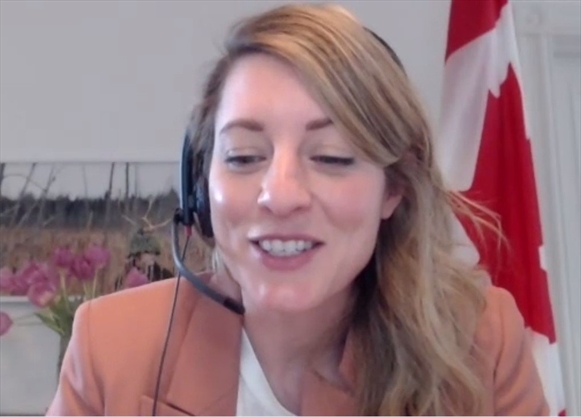Premier Doug Ford is pushing back at an independent watchdog’s report that found Ontario was sitting on $12 billion in cash — money that opposition parties say should have been used to fight the pandemic.
The province’s Financial Accountability Office said the government had $12 billion that was not allocated at the end of the second quarter Sept. 30, but Ford countered that all but $2.6 billion has now been earmarked.
It is available in the event of unexpected expenses, particularly with the COVID-19 vaccine which is about to be distributed and injected into millions of Ontarians in the coming weeks and months, the premier said.

“We actually have some money in contingency … because as we went through this pandemic we’ve seen things pop up,” he told the legislature’s last daily question period of the year.
The House adjourned two days early for its winter break until Feb. 16.
Active cases of COVID-19 remain at record levels, although the province reported 1,676 new infections Tuesday, down from the all-time high of 1,925 the previous day as Toronto and Peel Region began their third week in lockdown.
That tally marked the lowest number of new daily infections in two weeks, but hospital admissions for the virus soared by 69 people to levels not seen since late May. There were 10 more deaths.
Closures of non-essential businesses and lost jobs make it imperative for the government to spend more on direct supports, rent relief and paid sick days so workers with potential symptoms can afford to stay home, said NDP deputy leader Sara Singh.
She accused Ford of “hoarding money and waiting for a vaccine,” adding that “working families in hot spots like Brampton can’t sit back and just wait for a vaccine.”
Green Leader Mike Schreiner said the Progressive Conservative government should have used more of the $12 billion in the summer on improved testing, contact tracing and smaller class sizes to mitigate the effects of the second wave COVID-19 that began in September.
“Those are the actions we needed to take to contain the virus and now we’re paying the consequences,” he told reporters. “Ontario is playing catch-up with a virus that is spreading at record levels.”
Cases grew so quickly this fall contact tracers in Toronto could not keep up.
The Ontario Chamber of Commerce backed the NDP’s call for 10 personal emergency leave days in a private member’s bill called the Stay Home If You Are Sick Act from London West MPP Peggy Sattler.
She proposes seven of them be paid and calls for another 14 days of paid leave during any infectious disease emergency.
“For months, public health experts have been calling for paid sick leave to help slow the spread of COVID-19,” Sattler said, noting an estimated 60 per cent of workers do not have paid sick days.
But the Chamber of Commerce said government funding is needed to cover the costs of the proposal, calling it “the right thing to do.”
“Businesses, particularly small businesses, simply cannot afford the additional financial responsibility to fund sick leave at this time,” the organization said in a statement.
Ford cancelled the previous Liberal government’s paid sick day legislation after taking office in 2018.
After months of rising cases, Ontario now has 794 patients in hospital with COVID-19, double the level of a month ago with at least 219 in intensive care and 132 of them on ventilators.
The increasing ICU admissions have “potentially devastating consequences” for people awaiting non-emergency surgeries, procedures and tests because they crowd out non-COVID patients, said the Ontario Hospital Association and groups representing registered nurses, doctors and respiratory therapists.
Rob Ferguson is a Toronto-based reporter covering Ontario politics for the Star. Follow him on Twitter:
